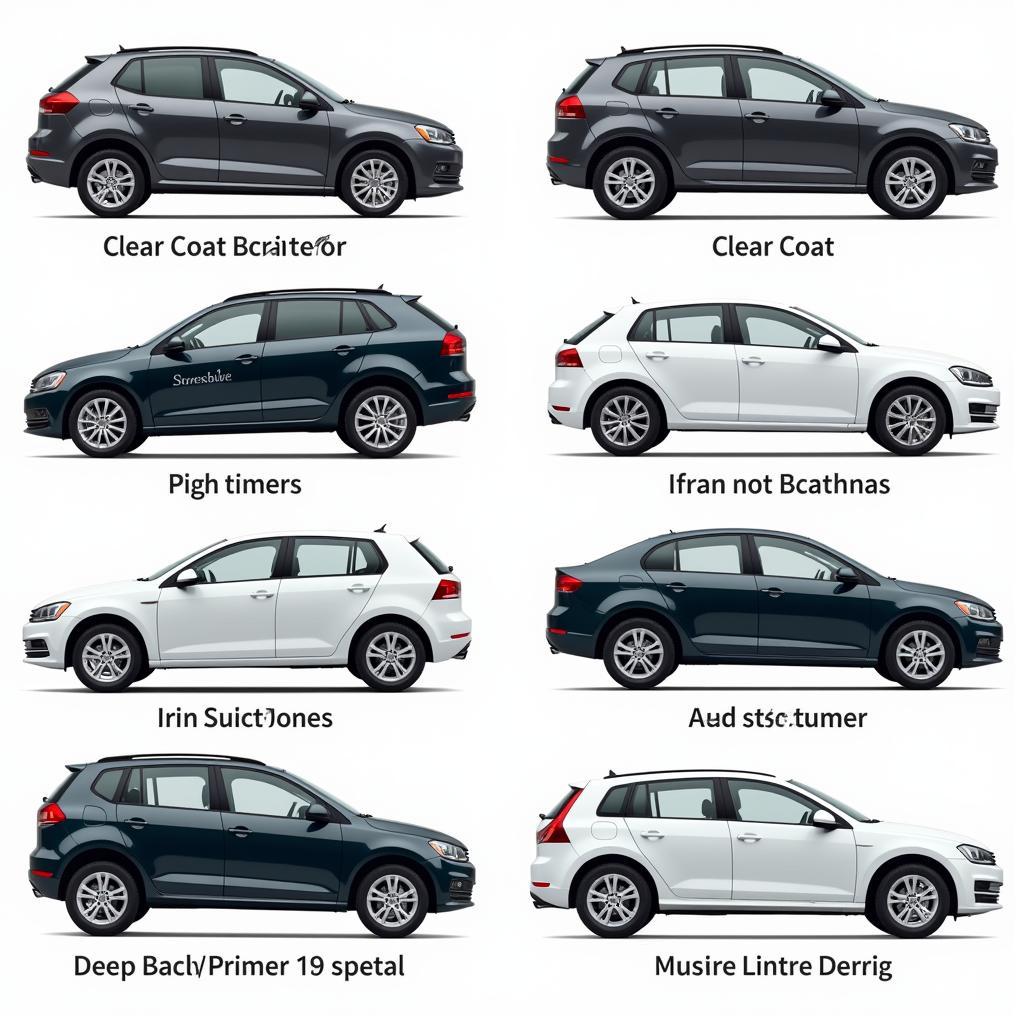Car maintenance is an essential aspect of owning a vehicle. It ensures your car runs smoothly, safely, and efficiently. However, many car owners wonder how much they should budget for car maintenance each month. This article will explore the factors that affect car maintenance costs and provide an estimated range for monthly expenses.
What Factors Influence Monthly Car Maintenance Costs?
Several factors contribute to the overall cost of car maintenance, making it challenging to pinpoint an exact figure. Here are some of the most influential factors:
- Vehicle Make and Model: Different car models have varying maintenance requirements and part costs. Some cars are known for their reliability and low maintenance needs, while others require more frequent servicing.
- Driving Habits: Your driving style and mileage directly impact the frequency and cost of maintenance. Frequent driving, especially in harsh conditions, can accelerate wear and tear on your vehicle’s components.
- Age and Mileage: Older cars with higher mileage generally require more frequent and extensive maintenance, leading to higher costs.
- Location: The cost of labor and parts can vary significantly based on your geographical location. Urban areas typically have higher costs compared to rural areas.
- Type of Maintenance: Different types of maintenance have different cost ranges. Routine oil changes and tire rotations are relatively affordable, while major repairs, like engine overhauls, can be significantly more expensive.
How Much Should You Budget for Monthly Car Maintenance?
While the actual cost can vary, a reasonable estimate for monthly car maintenance ranges from $50 to $200. This figure accounts for basic maintenance like oil changes, tire rotations, and routine inspections.
Here’s a breakdown of potential monthly expenses:
- Oil Change: $30-$60
- Tire Rotation: $15-$30
- Fluid Check: $10-$20
- Air Filter Replacement: $20-$50
- Brake Pad/Rotor Inspection: $30-$60
- Other Routine Inspections: $10-$50
It’s important to note that this is a general estimate. You may need to budget more or less depending on your specific vehicle, driving habits, and location.
Tips for Saving on Car Maintenance Costs
- Regular Maintenance: Sticking to a regular maintenance schedule can help prevent major repairs and minimize costs.
- Shop Around: Get multiple quotes from different repair shops to compare prices and services.
- DIY Maintenance: If you are mechanically inclined, consider performing basic maintenance tasks like oil changes and tire rotations yourself to save money.
- Use OEM Parts: Original Equipment Manufacturer (OEM) parts are often the best option for long-term performance and reliability, but they can be more expensive. Explore aftermarket alternatives that meet quality standards.
- Consider Extended Warranties: For new vehicles, an extended warranty can help cover unexpected repairs and provide peace of mind.
How Often Should You Schedule Maintenance?
Your vehicle’s owner’s manual is your best guide for recommended maintenance intervals. However, here are some general guidelines:
- Oil Change: Every 3,000-5,000 miles or 3-6 months
- Tire Rotation: Every 5,000-7,500 miles
- Fluid Check: Every 3,000-5,000 miles
- Brake Pad/Rotor Inspection: Every 10,000-15,000 miles
- Air Filter Replacement: Every 12,000-15,000 miles
“It’s crucial to stay ahead of maintenance needs to avoid major breakdowns and costly repairs,” says John Thompson, a certified automotive technician with over 20 years of experience. “Regular maintenance is the key to keeping your car running smoothly and extending its lifespan.”
What About Unexpected Car Repairs?
Unexpected repairs are a common part of car ownership. Set aside a separate emergency fund for these occurrences. Ideally, aim for $500-$1,000 in your emergency fund to cover unexpected costs.
FAQs
1. How much does it cost to maintain a car annually?
The average annual car maintenance cost can range from $500 to $2,000, depending on the factors discussed earlier.
2. Can I save money on car maintenance by using generic parts?
While generic parts can be more affordable, it’s crucial to ensure they meet quality standards. Using low-quality parts could lead to premature failure and additional expenses in the long run.
3. How do I know if my car needs maintenance?
Pay attention to warning lights on your dashboard, unusual noises, changes in performance, and fluid leaks. If you notice any of these signs, it’s recommended to schedule a professional inspection.
4. Is it worth getting a car maintenance contract?
Car maintenance contracts can provide budgeting peace of mind and cover routine services. However, it’s essential to carefully evaluate the terms and conditions to ensure it aligns with your specific needs.
5. What are the benefits of regular car maintenance?
Regular maintenance extends your car’s lifespan, improves safety, enhances performance, and helps you avoid costly repairs.
Contact Us for Your Car Maintenance Needs
At AutoTipPro, we are dedicated to providing expert car maintenance and repair services. Contact us today for a consultation or to schedule an appointment:
Phone: +1 (641) 206-8880
Office: 500 N St Mary’s St, San Antonio, TX 78205, United States
Let us help you keep your car running smoothly for years to come.





Leave a Reply